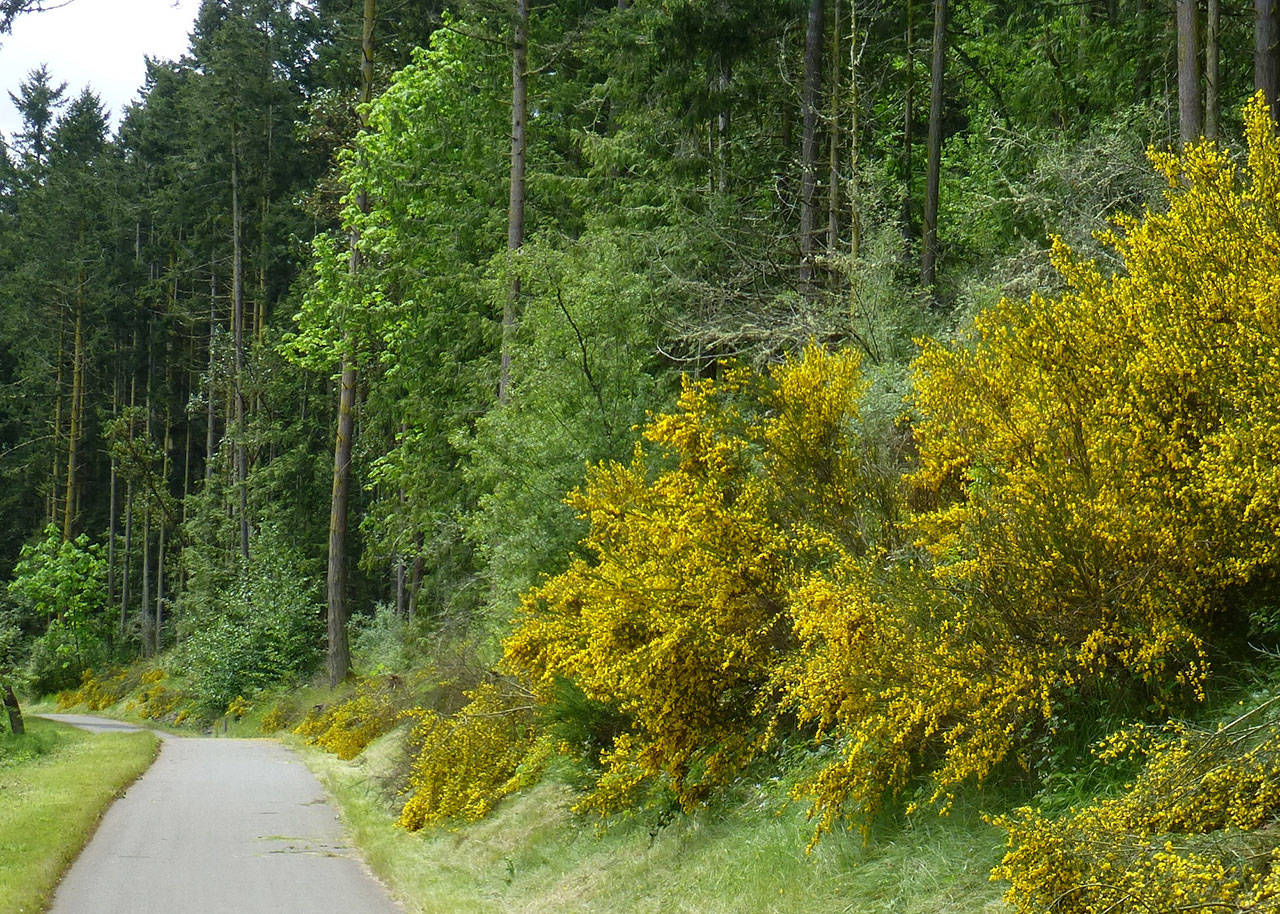Highly invasive, problematic to reforestation and a fire hazard, Scotch Broom is an unwelcome guest to the Olympic Peninsula landscape — and it’s back.
The Clallam County Noxious Weed Control Board offers these tips in taking out this local weed that is mildly toxic and also triggers allergic reactions in many people:
• Hand-pulling is easiest when seedlings are small and the soil is moist. Soil disturbance, which can create a flush of seedling growth, should be minimized. The Weed Wrench is a tool designed to remove tap rooted plants. It can be used on older broom plants that are too large to hand pull. Contact the Weed Control Board or the WSU Extension Office at 360-417- 2279 for information on borrowing or buying these tools.
This method is highly recommended when the soil is moist and the main stem hasn’t gotten to its mature woody stage. As one extracts the plant, pull out as much of the plant root, shake the dirt off the plant, drop the plant with root up in the air, and stomp the disturbed soil to discourage more seed germination.
• Cutting with hand tools or machines is most effective during dry summer months when plants have little moisture to spur re-growth. Plants may re-sprout unless the stumps are removed or chemically treated. Chemicals should be applied within 5-20 minutes of cutting.
• Monitor the site for several years; promptly remove new seedlings.
• Replace Scotch Broom with Northwest natives like beautiful yellow flowering Oregon Grape, among others. It comes in various heights lending itself nicely to various areas of landscaping. Native bees enjoy the nectar from its flowers and birds get sustenance from its berries. An added bonus is that Oregon Grape also has a strong root system.
Broom Busting
Since 2013, volunteers with the Broom Busters group has helped efforts to eradicate the proliferation of Scotch Broom throughout the county. The group has completed more than 600 volunteer hours and raised nearly $10,000 for the Dungeness River Audubon Center’s education programs.
For more
Want more ideas? Contact the Clallam County Noxious Weed Control Board at www.clallam.net/weed or 360-417 2279.



